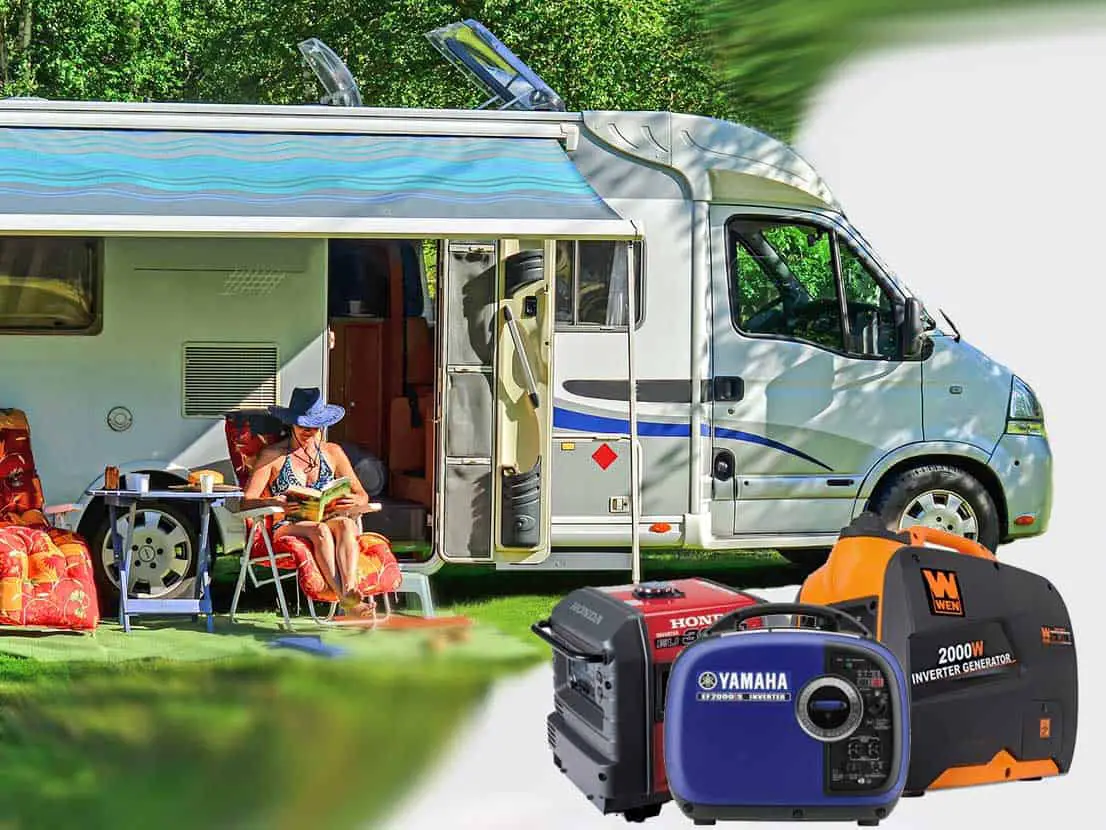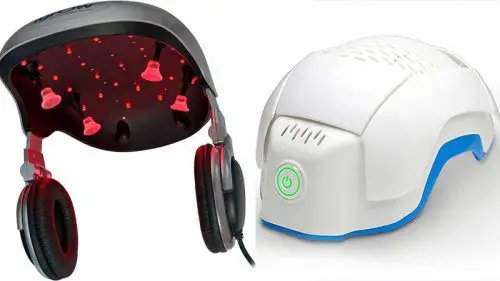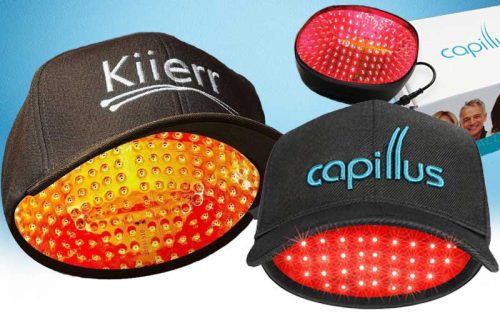Top 3 Quietest RV Generator: After putting a long list of inverters and conventional generators to the test, we have come up with 3 most reliable options for those looking for a pleasant, care-free and noiseless camping trip with the most effective when it comes to power supplies.
We sifted through all the good options, put them to trial and devised a list that will aid you, prove to be reliable, efficient and portable enough to be carried around with ease.

Inspiring your journey, one story at a time. #LifeFalcon.
Here’s the thing, we tested each in experimental settings over various periods of time so what came out was a result of a thorough trial.
Our top three picks:
- Honda EU3000iS
- WEN 56200i
- Yamaha EF2000iSv2
Each one has brought nothing but the efficiency with minimum noise possible making them easily the go-to options for a camping trip with your trusted RV and needed appliances.
Table of Content
Honda Super Quiet Gasoline Portable Generator

Honda is a name that speaks for itself. When you think of any appliance by Honda, your mind instantly thinks “reliable”, “efficient” or something along those lines. And rightly so. Honda has earned its name and reputation presenting one after the other worthwhile quietest generators for camping and some such. Honda came up with the EU2000i, the EU2200i, the EU1000i, and the renowned EU7000iS but one innovation that stood the test of time and the trial of effort has been the EU3000iS.
Straight out of the box, the EU3000iS is critically acclaimed to be the quiet.
It’s compact compared to most other generators rivaling it in the market.
Even though it is one of the most lightweight units out there, it weighs around 130 pounds and comes with a wheelset purchased separately that makes it easier to move it around. It has a running 2800 watts power while a 3000 watts starting power making it adaptable to nearly all appliances required in an RV for a worthwhile trip including refrigerator, microwave, coffee machine, electric grill, laptop, portable fans, multiple lights and very efficiently a standard 13,500 BTU AC unit that your RV may or may not have.
Noise Levels
The Honda EU3000iS ranges from having a 49 Dbs to a low 58 Dbs noise level depending on whether you operate it on eco-friendly or excess load.
It’s the quietest generator in the market as compared to others.
Of course, the noise level varies by load and requirement for power. At 25% load, this unit produces the minimum 49 decibels which is just above the low humming of a refrigerator.
Pretty convenient if you ask us.
Other Factors:
When we first came around to this unit, it was heavy. About 130 pounds with handles on either side for a two-person carry despite being really small.
We got a wheelset separately that made it so much easier to move it around. It instantly became lightweight in terms of displacing it.
This unit runs on gasoline with a capacity of 3.4 gallons that can run from 7 to 20 hours depending on the load you put on it.
Efficiently, it runs a maximum of 20 hours on a 25% load and can provide double the power if two of these are connected side by side adjoined by a cable.
It’s fuel-efficient more so because of being an inverter which means it adjusts the power output according to the need or requirement at any given time.
It caters to a 3000-watt starting power and a 2800 watt continuous running power and being an inverter, it gives off processed and clean power as to not damage sensitive appliances.
The dimensions for an EU3000iS unit are 22.4 x 18.9 x 25.9 inches which makes it very compact for its power and efficiency. For a lot of people, the size of the generator plays a key role since adjusting it for traveling and transport can be an issue.
This unit has a turn-key start which makes it easier and friendlier to start and work with. It has reported reliability of years.
It is effectively CARB compliant as well.
With that said, let’s go over a list of pros and cons to make it more convenient for you.
Pros. & Cons.
Pros
- Fuel efficient
- Honda’s reputable quality
- Noise levels range from 49-58 Dbs; quietest that a generator can go
- 3000-watt starting power – 2800 watt running power
- Eco mode available
- Has a turn-key start
- Comes with an additional purchase of a wheelset
Cons
- On the pricier side
- A little on the heavier side
Quite honestly, there isn’t anything you can fault with this one except maybe the price but then again, if you’re looking for something that lasts long, performs efficiently, intrinsically becomes your best friend for any camping trip, puts out the best for your RV and can be used for multiple other purposes and circumstances, the Honda EU3000iS is the perfect.
Instead of spending money on one unit after the other and replacing more and more units from time to time, we suggest investing in this little guy and making your lives a little easier.
We can assure you, your fellow campers will not complain about you or your inverter being disruptive and ruining their vacation.
WEN 56200i Super Quiet 2000-Watt

Of course, it does not have the brand name Honda or Yamaha backing it up but it has proved to be one of the most worthy options with its exceptional efficiency and a great noise level that will certainly make you and other happy campers.
This small, portable, very lightweight unit is second on our list of quiet above the Yamaha is mainly because of the price point and how reliable it is for such a great value for money.
Retailing at almost ⅓ of the price of a Honda or Yamaha inverter, this unit is perfect for those on a budget but still looking for a good, efficient, less noisy option to make the most out of their camping trip.
Noise Level
Not necessarily the quietest as compared to the Honda EU3000iS but it offers a great range.
At 25% load, the WEN 56200i has a 51 decibels sound level which is greater than the EU3000iS but surely lesser than so many inverters out on the market.
At 75% load, this unit produces a sound around 55-56 decibels which is certainly much quieter than more renowned inverters. For instance, the Generac 6866.
This unit is one of the most compact ones. It weighs around 50 pounds and has a one-man handle for easy carrying.
More than half the weight of the Honda EU3000i, it certainly takes a check mark when it comes to portability.
It is by no means as efficient as Honda EU3000i when it comes to running time since the fuel capacity is 1.0 gallons as compared to the 3.4 gallons of the Honda. So naturally, it runs for 9 hours per full tank. For its size and price, 9 hours is an amazing run time for an inverter even compared to so many others on the market.
This unit has a starting 2000 watt power where it runs with a continuous 1600W which is more than enough to power common appliances standard for an RV up for camping.
It can easily power incandescent light bulbs (around 30), microwave oven, toaster, coffee machine, fans, TV displays, laptops, desktop computers, cell phone chargers, and about a hundred CFL light bulbs.
Two of these units put together can provide double the power and can work an air conditioning unit just the same.
It sits at dimensions 18 x 11 x 18 inches; very small and handy for storage and traveling. It can easily be carried around like a small briefcase or luggage bag.
It comes with an “eco-mode” for when your power requirement is under 1000 watts which makes it more fuel-efficient for that time-space.
Amazing at what it does, honestly. CARB compliant as well. If you’re worried about that sort of thing.
To cap it up, the pros and cons composed for those skimming through:
Pros. & Cons.
Pros
- Lightweight around 50 lbs
- Noise level around 51-57 Dbs
- Comes with an eco-mode
- ⅓ the price of Honda or Yamaha, affordable for those on budget
- Compact and portable
- 2000 watt running power
- 9 hours running time for power output
Cons
- Does not have the brand repute of Honda or Yamaha
- Not suitable for heavy use like AC units unless paired with an identical unit
Let’s face it. If you want to go camping with an RV and inverters are shaking your budget rather roughly, this one is definitely the best option for you. It’s efficient, it has got a great noise level/wattage ratio, it is lightweight and easy to carry around. Its performance level is on par everywhere.
Yes, it does not power an AC unit as the Honda does but you can always get another unit and pair them together. And again, it is not quieter than Honda but it is much quieter than most inverters out there.
So there, it’s one heck of an option for you budgeted folks.
Trust our judgment and go get one for your camping trip. It’ll make your lives and of the campers around you much easier and noise-free.
Yamaha EF2000iSv2

Easily one of the most versatile and reliable inverters, this unit provides the same reputable services as the Honda and in this specific situation, the WEN as well.
The only reason it’s no higher than the WEN 56200i is that of the cost for value in which case the WEN 56200i wins.
One can even argue that Yamaha has earned its name and fame by providing quality products and services not just with inverters but with all their other appliances as well.
When it comes to this EF2000iSv2, Yamaha came through with a portable option for all the eager campers going about in their RVs.
Noise Level
This produces a quiet 57 decibels at eco mode with no load which is slightly higher than Honda and WEN earning it the third place in our rating.
Still one of the quietest on the market, the sound is nowhere near annoying unlike with a lot of inverters that go up to 63 decibels even at eco modes.
It is slightly lighter than the WEN 56200i at only 44 lbs, easily carried around and transported for one-person efforts.
With an engine slightly smaller than the other two, it features a 1.1-gallon gasoline tank comparing to the 1 gallon of the WEN 56200i. At a 25% load, it runs nearly 10 and a half hours which is slightly higher than the WEN 56200i but the WEN still takes the lead when it comes to price.
This generator is identical to the WEN 56200i when it comes to power ratio with 2000 watts starting power and a 1600 watt running power.
Much like the 56200i, it can power the standard RV appliances and once again, if paired with another identical Yamaha unit can power an air conditioner unit.
The dimensions lie at 19.3 x 11 x 17.9 inches making it effectively the smallest of the units among the three and compact enough to be traveled with easily.
Pros. & Cons.
Pros
- Lightweight, compact
- Noise Level 54-63 Dbs
- Fuel-efficient, 1 gallon for 10.5 hours
- 3-year Warranty
- 2000 watts starting power, 1600 watts running power
- Comes with eco-mode
Cons
- Pricier than the WEN 56200i
Sound Level in Decibels Sources – You can have a rough idea this way.
0 Dbs – Threshold of Human Hearing
10 Dbs – Normal breathing
20 Dbs – Whispering
30 Dbs – Inside the room at night
40 Dbs – Quiet library sounds
50 Dbs – Refrigerator
60 Dbs – Normal Conversations
Generators are typically advertised to have noise levels somewhere between 40 and 60 Dbs which means that they should not sound louder than your normal refrigerator or conversations.
What size should You get?
The first thing you need to note for this is what exactly you are planning to power in your RV or on your camping trip.
A list of appliances, if you will. It makes it easier to understand what size do you actually need.
For instance, you are planning to power a refrigerator, a microwave, several lights, and a fan.
The refrigerator would be 600-1400 watts, the microwave 1500 watts, the lights would be 400 watts and a portable fan would be 120 watts.
Adding all of that up, it comes around 3000+ watts.
Now, normally when it comes to camping; you have mostly 2000 watts or 3000 watts.
– A 2000 watt generator is friendly enough to handle a microwave, coffee machines, grills, and heaters, etc. Pretty basic needs for camping, right? They may be basic, but they are lifesavers. What’s a trip without a grill and some good food?
– A 3000 watt generator, on the other hand, is strong enough to power an air conditioning unit in an RV for hotter, more uncomfortable days when surviving without an air conditioner can be hell, to say the least. These generators are your best friend for those days, trust us on this.



















